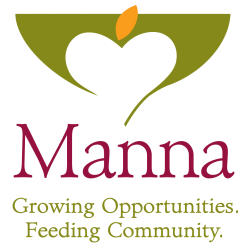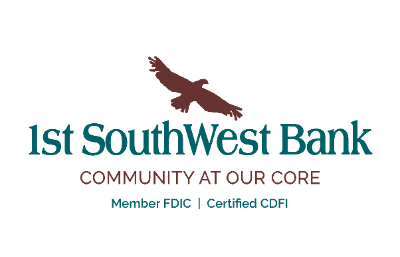Green Business Certified Awardees
PLATINUM CERTIFICATION
Columbine Landscapes‘ creations include native and adapted plants that attract pollinators, as well as “water-wise” varieties that require little maintenance. The company also designs rain gardens to take water from hardscapes underground for slow infiltration instead of rapid runoff and erosion that overloads the river. Columbine achieved Platinum with very few upgrades to owner Eva Montane’s home office, since she bikes most of the time when not hauling plants and equipment.
Desert Sun Coffee Roasters is proud to be recognized with a Green Business Certificate, a testament to our unwavering commitment to sustainability. Our holistic approach encompasses ethical sourcing from small-scale farmers, investment in eco-friendly initiatives, and adherence to organic, fair trade practices. This certificate underscores our dedication to reducing environmental impact, fostering community growth, and leading by example in sustainable business practices, ensuring every cup of coffee we offer contributes to a healthier planet.
Durango Outdoor Exchange is also Platinum, taking unspoken policies and putting them in writing: an energy conservation plan, a waste-cutting purchasing plan, and a commitment to use low VOC cleaning supplies and low-flow water fixtures. Long before certification, the consignment store installed a 7 Kw solar panel system and a DC fast charging EV station. The business donates skis for use as Navajo reservation vegetable garden fences and identifies needed items to go directly to local non-profits.
GOLD CERTIFICATION
Dorothy Parker Design does interior design with the environment in mind. Parker encourages clients to convert to electric and help them make decisions about sustainable furnishings, flooring and wall coverings. Her reputation has garnered her continued design direction on some large construction projects. After an energy efficiency audit, she converted her office to green power (a phone call to LPEA) and sealed her windows and doors with weatherstripping.
Phoenix Physical Therapy has completed almost every energy efficiency item on the assessment – from installing programmable thermostats and power strips to revamping services so they are less energy intensive and encouraging suppliers to use less power. The business had its carbon footprint calculated and encourages employees to use alternative transportation to get to work. To reduce waste, Phoenix started a paperless intake system and recycles just about everything; employees work to keep water use down and use green cleaners to reduce toxins and improve air quality.
Manna, The Durango Soup Kitchen, is a nonprofit that provides food and other resources to people at risk and/or experiencing homelessness. This organization achieved Gold partly because its newly remodeled Resource Center has installed solar and other sustainable attributes. Other innovations showed Manna went above and beyond: the produce grown in the garden supplies the kitchen and free food market; the organization planted drought tolerant and pollinator plants to offset the hardscape; lastly, an air quality assessment of the campus was conducted to ensure that employees and people they serve are breathing clean.
The Sweaty Buddha Hot Yoga achieved Gold by making a huge investment in energy efficiency for the studio. The energy audit resulted in recommendations that led the owner to close for a month to install spray foam insulation, replace ceiling tiles, repaint and install a new HVAC system to improve the air quality. In addition, all the lights were replaced with LEDs, a programmable thermostat is now in the lobby, the studio now buys only eco-friendly products and cleaning supplies from WeFill, and it offers a free mat or towel rental for folks who get to class without a car.
SILVER CERTIFICATION
Sage Fresh Eats, popular because of its use of locally grown ingredients, did extremely well in the Materials, Waste and Food categories. Sage purchases paper supplies that are recycled or bamboo, uses very little plastic and zero styrofoam, buys from companies with take-back programs, and employs life-cycle thinking when deciding whether to repair or replace equipment. More than 75% of Sage’s waste is recycled, usable electronics are donated, and is taking steps to reduce packaging: the restaurant started out with 100% compostable packaging and has encouraged its vendors to do the same. Sage offers plant-based protein items and its animal products are certified sustainable and humane. Lastly, the restaurant donates its expired produce and its food waste gets fed to a local rancher’s pigs.
Visit Durango, aka Durango Welcome Center, crossed the finish line recently with a Silver rating. While upgrades to the Main Avenue building are in the works, they already had LED lights (including exit signs), low-flow water fixtures, aerators on their faucets, and showers to encourage alternative commuting. They made new strides by creating sustainability-driven energy, purchasing and remodeling plans – they addressed waste, appliances, and air quality. Visit Durango even purchased carbon offsets after calculating their footprint from travel, helping to jump start 4CORE’s low income energy efficiency project.
BRONZE CERTIFICATION
First Southwest Bank, which currently has six regional banks enrolled in the program, received its first Bronze certification here at the Durango branch. They got points for already having water-wise, native plant landscaping around the building at 2nd Ave and College Drive; the practically paperless bank also has an EV charging station and incentives for employees to electrify. The bank offers a slew of benefits for employees (even part time), including low mortgage rates, but to get up to Bronze they added plants everywhere to improve air quality and switched to greener cleaners.
Durango Natural Foods Co-op has also made it to the Bronze level and had plans to climb higher this year. In addition to identifying and mitigating climate-related risks, they called LPEA to switch to all-green power, and encouraged their suppliers to reduce their energy consumption and use compostable packaging. The Co-op – known for offering locally sourced foods – is also working with other grocers to coordinate shipments, has more than 50% of its fleet electrified, and more than 75 percent of its waste is recycled – 100% of food waste.










